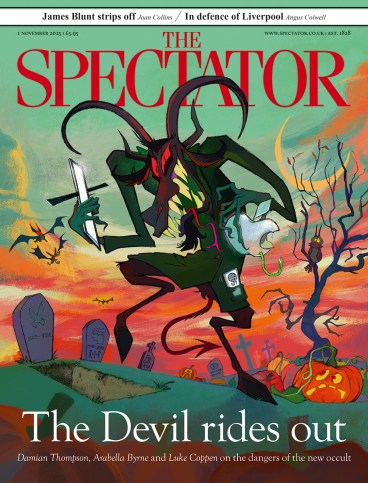
Javier Milei’s election in 2023 was a repudiation of decades of Peronist turmoil, corruption and inflation. Milei offered shock therapy, delivered with an Austin Powers haircut and chainsaws. This is a man who had worked as a tantric sex coach and claims to speak not just with animals but also with God himself. Eyebrows were raised. Could such a strange man, one who seems to embrace the new occultism outlined in our cover piece, deliver his promised reconstruction of Argentina? Or would voters soon grow tired of the state-slashing mystic?
Yet this former frontman of a Rolling Stones tribute band has proved his sceptics wrong. He took office with inflation touching 200 per cent and acted decisively: deregulating the economy, cutting the public sector by 30 per cent, devaluing the peso, simplifying taxes and labour laws, halving the number of ministries and pushing through a budget surplus. The plan worked.
Inflation plummeted to a seven-year low and growth surged to 6.3 per cent. Poverty fell. But investors remained jittery. The central bank was selling off foreign currency reserves to sustain the peso; corruption allegations threatened to tarnish Milei’s government like its predecessors; street protests suggested voters were tiring of his spending control. After his party lost a Buenos Aires regional election earlier in October, onlookers expected a similar setback in midterm elections last weekend.
Argentine political pundits proved no more accurate than their British counterparts. Donald Trump backed Argentina with a $40 billion bailout commitment and Milei romped home with 41 per cent of the vote. He can now resist left-wing attempts to override his presidential veto; the peso rallied as investors knew his thrift would not soon be reversed. ‘Today we passed the turning point,’ he declared. He can continue the missions he outlined to The Spectator last Christmas: to ‘extract the parasite’ of the bloated public sector and ‘give power back to the people’.
Milei’s success is a vindication for liberty-lovers worldwide. But it is also a reminder of the eternal benefits of living within one’s means and remaining humble before the bond markets. Austerity has, until recently, been a dirty word. UK voters want decent public services and yet the NHS perennially warns it is close to collapse, police forces are nowhere to be seen and the few infrastructure projects we do have are over budget and delayed. Meanwhile, taxes are at a postwar high. Yet even as Britain slumps towards bankruptcy, too many are terrified of fiscal discipline.
Liz Truss was ejected after 49 days because she was unwilling to match tax cuts with spending cuts. Her failure was caused not by laissez-faire economics, but by a failure to balance the books. Labour suffers from a similar reluctance. Take Rachel Reeves’s scrabble to plug a multi-billion-pound hole in the Budget. That is partly caused by the unwillingness of Labour MPs to trim a paltry £5 billion from the ever-growing welfare bill. Milei’s example proves that voters can tolerate cuts if they understand there is a purpose to them. The U-turn on the winter fuel payment cut was caused by Labour’s failure to explain why it was necessary.
Javier Milei’s success is a reminder of the eternal benefits of living within one’s means
The right is beginning to talk in terms of austerity again. Kemi Badenoch has outlined a £47 billion package of spending reductions. Rishi Sunak has reappeared to warn, a little late, that cutting bureaucracy, rather than raising taxes, leads to growth. Nigel Farage has junked the £90 billion promises made in Reform’s last manifesto. But how prudent can either party be when still committed to policies such as the ever more burdensome triple lock – let alone Farage’s new passion for renationalisation? Increasingly, it seems that only a real fiscal crisis will force a Milei-esque reckoning.
Milei’s success is also a warning. When voters become convinced of their country’s desperation, they can embrace a radical politician, however idiosyncratic. Milei’s peculiarities set him apart from the staid representatives of the failed centre; it is unsurprising that Trump brands him his ‘favourite president’. Eccentricities are not, in and of themselves, a problem. But they suggest that voters are willing to explore strange, potentially unsettling candidates as they seek to overthrow the status quo.
In Britain, this rejection of blandness has given rise to Farage. Two decades of stagnation have also created politicians such as Zarah Sultana and Zack Polanski, each with their own peculiar and dangerous beliefs. It seems unlikely that another 2008-style crash will encourage voters into the embrace of the managerialist centre-right of the coalition years. In a world where people are increasingly willing to entertain esoteric theories, perhaps it is time to look across the Atlantic to the mystic in Buenos Aires.







Comments